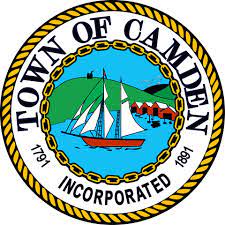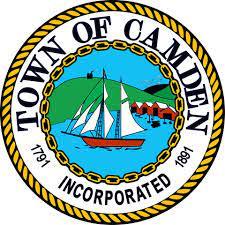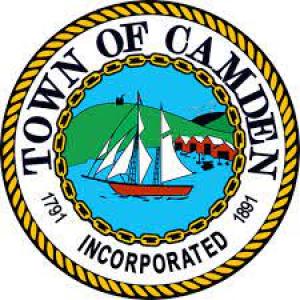Camden’s six-year history of untreated sewage overflow goes before Maine BEP
CAMDEN — In April 2015, Camden learned that sewage flowed over capacity at its Bay View Street pump station. Later in July, it happened again, that time attributed to a force main leak. At the end of September of that same year, sewage overflows in the thousands of gallons were recorded at manholes throughout the town.
It happened again in 2016 at the Bay View Street pump station, and in 2017 manholes overflowed — 25-50 of them – in the spring and fall.
By 2018, the system had overflowed in thousands of gallons from the Sea Street pump station. And so on. By 2021, the manholes had again overflowed.
With it all, bacteria and pollutants from untreated waste entered the harbor.
Most of the time, the overflows occurred during heavy storms. In total, the Maine Dept. of Environmental Protection said 2.4 million gallons from Sea Street and 1.08 million from Bay View Street had escaped from the municipal sewer system.
Camden was first issued a violation notice in October 2018.
“Camden’s SSOs (sanitary sewer overflow) are caused by excess inflow and infiltration into the collection system,” wrote the DEP in a Sept. 29 consent agreement, which has been signed by Camden Town Manager Audra Caler.
That consent agreement has been discussed often by the Select Board in recent meetings, and the town has already investigated and, “removed excess inflow and infiltration,” the DEP said.
But on Dec. 2, the consent agreement will come before Maine’s Board of Environmental Protection at a regularly scheduled meeting to be officially signed and filed into the archives.
The BEP will convene at 10 a.m., in a hybrid meeting, with some members attending in person Augusta, and others joining online via Zoom:https://mainestate.zoom.us/j/86573497616. Meeting ID: 865 7349 7616
“In addition to the SSOs and during the same period, Camden exceeded permit condition limited for flow, fecal coliform bacteria, total suspended solids and percent removal, and biochemical oxygen demand and percent removal,” wrote Brian Kavanah, Director the DEP’s Bureau of Water Quality, and Laura Crossley, also with the same DEP bureau, in a memo to the BEP chair, Mark Draper, and the Maine Assistant Attorney General, Laura Crossley.
The permit referenced is the 2008 state-issued waste discharge license, which is renewed periodically, and authorizes the discharge of 1.21 million gallons per day of secondary treated municipal wastewater in Camden Harbor.
“Out of the 18 effluent violations, five flow effluent violations exceeded permit limit by more than 15 percent,” they said.
The consent agreement is the signed acknowledgement by the state and the town that Camden’s one of $25,511 will be reduced $10,000 contingent on fixing the problem, which includes rerouting and replacing the force main at Sea Street, and the completion of a capacity, management, operations and maintenance plan.
The $10,000 was to be paid to Maine Coast Heritage Trust as part of a mitigation plan known as a supplemental environmental project.
That project, to be completed by March 2023, entails replacing old, broken and poorly located fencing at Aldermere Farm in Rockport to exclude animals from streams within the pastures and create a wider riparian zone for Lily Pond and the streams.
The fencing is to consist of 8-foot cedar posts and 48-inch wire or electric fencing, and to run along 2,200 linear feet of Rockport Harbor, watershed streams and within the Lily Pond shoreland Zone.
Part of the SEP is to create an invasive plant management plan, as well.
“This project provides a publicly accessible example of how working farms can balance farming with wetland resources,” the SEP said.





























